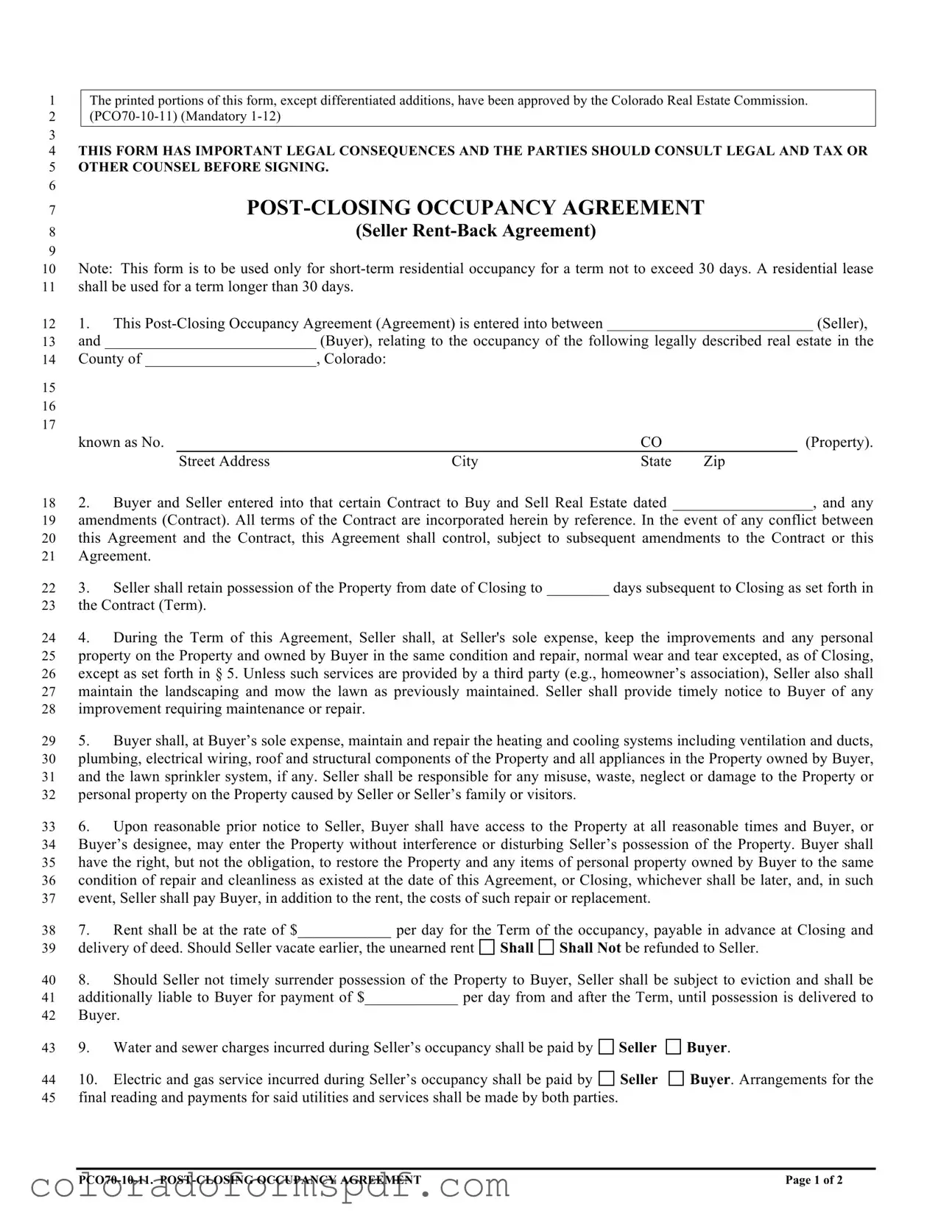Get Colorado Post Closing Occupancy Agreement Form
The Colorado Post Closing Occupancy Agreement is a legal document that allows sellers to remain in their property for a short period after the sale has closed, typically not exceeding 30 days. This arrangement, often referred to as a seller rent-back agreement, facilitates a smoother transition for both buyers and sellers during the moving process. Understanding the terms and conditions outlined in this agreement is crucial, as it can have significant legal implications for all parties involved.
Get Document Online

Get Colorado Post Closing Occupancy Agreement Form
Get Document Online

Get Document Online
or
Download PDF
Quick form completion starts here
Edit and finish your Colorado Post Closing Occupancy Agreement online, then download.